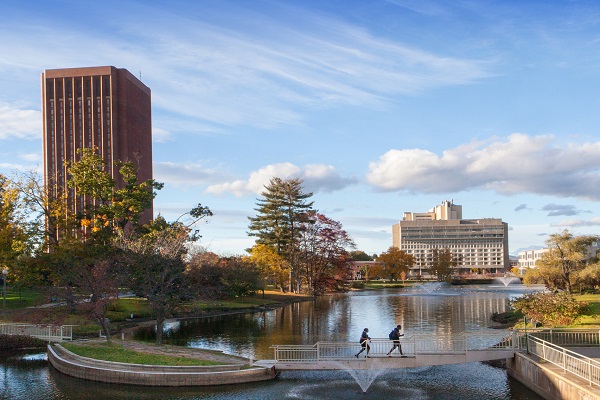University Of Massachusetts Amherst Hosts Big Ten And Friends Utility Conference
A four-day annual conference that fosters collaboration among facilities personnel in higher education and business partners in the utility and energy industries was held recently at UMass Amherst.
The Big Ten and Friends Utility Conference, hosted by Physical Plant June 20-23, brought together utility, energy and engineering professionals within the Big Ten and Friends Sustainability Network, an affiliate program in the Association for the Advancement of Sustainability in Higher Education (AASHE). The group shares the common challenges, opportunities and interests of large, complex, multi-site research universities.
With the participation of business partners, such as manufacturers and consultants, the conference provides a powerful link for professionals beyond the Midwest, where most Big Ten universities reside. UMass Amherst was the first New England institution to host the conference, which had more than 340 attendees from over 40 universities and colleges, said Ray Jackson, director of Physical Plant. UMass Amherst joined the network seven years ago.
Jackson says the conference “is unlike any other energy and utility conference. It has been ongoing for nearly 100 years, being hosted and planned by university facility administrators, with the main purpose of bringing university facilities, utilities and energy managers together in a collaborative manner to discuss emerging opportunities in the utility and energy sectors.”
In addition to presentations, the conference included talks, forum panel discussions, campus and facility tour and keynote address by Steve Goodwin, special assistant to the chancellor at UMass Amherst. Goodwin, who is also a microbiology professor and former deputy chancellor, reviewed the 25-year growth of sustainability at UMass and how faculty, staff and students have developed a sustainability culture that is now driving the UMass Carbon Zero initiative.
Other presentations, discussions and panels were conducted by facility administrators from Dartmouth College, MIT, Penn State University, Wesleyan University, Michigan State University, University of Virginia and the University of Wisconsin-Madison. The U.S. Department of Energy, Eversource, BOND Civil and Utility, Haley and Aldrich Inc. and Waldron Engineering and Construction Inc. represented the public and private sectors.
Topics included fusion, modular nuclear, energy project financing options, geo exchange fields, hydrogen fuel conversion, ground source heat pumps, campus electrification, thermal storage and public-private partnerships. The educational component focused on emerging decarbonization technology, resiliency, business of utilities, fuel innovations, operational efficiency and pathways to carbon neutrality.

